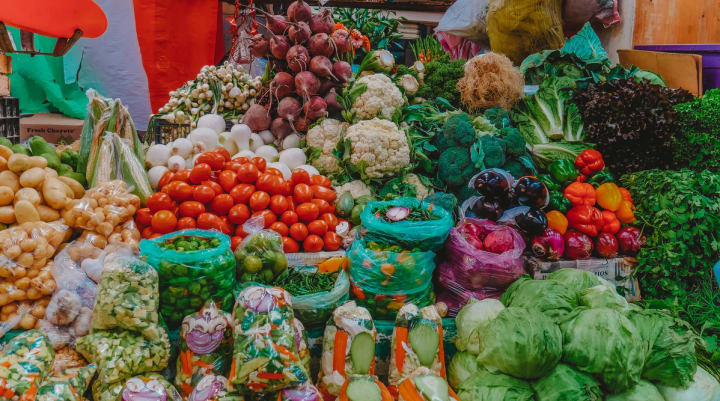Planting A Garden Amidst A Pandemic
Planting a garden, whether in the field or pots, begins with a seed

What will gardening do to aid in the fight against the coronavirus pandemic? Gardening has long been promoted as a therapeutic leisure hobby with many personal benefits. Gardening may be a positive family-inclusive hobby to follow at this period, as many people are working at home and children are studying at home.
Children like playing in the dirt. These youngsters like removing tiny weed seedlings from his grandparents' garden with a trowel.
Many students are unfamiliar with remote schooling. Hands-on events, such as gardening, will inspire children to engage in ways to improve their learning. Gardening can help young, preschool- and elementary-aged children reinforce skills like measurements, addition, subtraction, counting, sorting into groups, and color recognition. Gardening also teaches practical lessons such as practicing motor skills and developing a work ethic.
An Increasae in Vegetable Gardens
In periods of crisis, a study suggests that people will partake in more comfort-seeking behavior, in a recent Forbes report, adding that this may incline them toward more indulgent transactions that will make them feel better. This is why, during a crisis, vice or sin stocks (alcohol, cigarettes, and other kinds of goods that may be considered unethical or immoral) usually have little effect on their earnings — and even a lift in profits.
The customer need for small comforts amid significant volatility has had an unexpected effect on brands in the home and garden space. While some of the businesses we talked with already had a direct-to-consumer market model that they could use for expanded revenue, others saw the pandemic as an impetus to accelerate e-commerce transitions that would have otherwise taken much longer.

With people staying indoor during the Covid-19 pandemic, many people turn to or think about expanding gardens, whether to have food or just peace of mind during these trying times. Growing vegetables can be a perfect way to supplement your food intake while still benefiting your mental and physical health.
When you transition from early spring to colder weather, many residents begin to consider planting a greenhouse. Some gardeners may have a plot of land on which they can till the soil and prepare it for planting, while others can lack sufficient land to grow crops. Don't worry, with imagination and adaptation, you, too, can grow a garden. Growing crops in containers is an alternative, and a variety of containers may be used to grow vegetables.
Here are two container-selection tips:
Select a container that enough to accommodate the plant you're trying to expand. Tomatoes, for example, need a larger container than basil.
Be sure the container has enough ventilation such that as you rinse, the water does not remain in the container and drowns the plants.
Planting a garden, whether in the field or pots, begins with a seed. Numerous companies sell plants, and there are numerous variations of each kind of plant available. Many people are familiar with the sweet corn variety known as Silver Queen, but many others, such as Delectable, Illusion, and Allure. So, as you browse seed catalogs, learn about the various varieties and then determine what would grow better in your region and whether that vegetable is something you want to grow.

Many vegetables thrive when planted as seeds in the field or containers; however, certain plants (tomatoes, eggplant, peppers, broccoli, and melons) are more effective when planted as transplants (small plants). Transplants are usually available at the nearest garden shop. These are the most common types of transplants. If your gardening skills improve, you will want to start producing your transplants. A greenhouse will be ideal, but a sunroom, south-facing window, or grow lights will usually provide adequate light for the plants after they germinate.
When preparing your garden, keep in mind that any plant has a specific time to grow and that there is usually an ideal time for most crops to flourish. Many plants thrive almost as well in the autumn, and also those that like colder temperatures. You don't have to worry about planting just in late spring and summer.
In this time of COVID-19 pandemic, the adage gardening is cheaper than therapy, and you get tomatoes is even more real. You can perform gardening at home during periods of social isolation. The pleasure of the garden's beauty provides great gratification and stress relief; hence, gardening activity was estimated to have risen globally during this period.
To fully enjoy the garden's potential, it's essential to understand that it needs to be fertilized, particularly in a time of year when the growth is vigorous.
Keeping fit and stable is vital at any time, but it is essential during the coronavirus pandemic. If you have a garden or outdoor yard, you have a spot where you can keep your fitness and well-being in check.
Call me Jen Hensey, a writer and blogger of LifeStyleConvo & UrbanHouses, who worked as a full-time content creator. A writer by day and reader by night.
About the Creator
Jen Hensey
Call me Jen, a writer and blogger of LifeStyleConvo & UrbanHouses, who worked as a full-time content creator. A writer by day and reader by night.






Comments
There are no comments for this story
Be the first to respond and start the conversation.